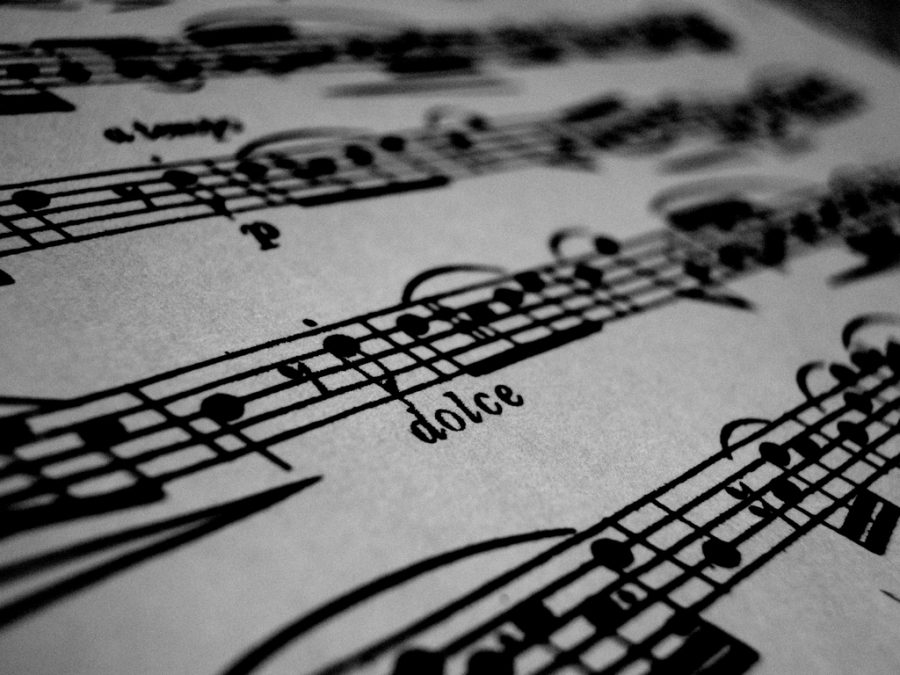Music Appreciation Week: Why You Should Care
April 24, 2017
From April 3rd through April 7th, NDP had its annual Music Appreciation Week. The theme this year was “Music through the Ages,” and it was well represented! Monday, we all listened to the music of the Beatles, Rolling Stones, and Johnny Cash. Tuesday, we heard 70s music like Stevie Wonder, Aerosmith, and Aretha Franklin. Wednesday, we listened to 80s music in the cafeteria and were treated to a Pops Concert during assembly. The Jazz Band, Orchestra, Choir, and NDP’s A capella group (the Blaze Clefs) all performed. I, for one, especially loved watching classmates and teachers dance in the aisles to an Earth, Wind & Fire medley! Thursday was awesome, too; we got to wear our favorite music t-shirts and were treated to a preview of Emma, A Pop Musical, and heard 90s music in the cafeteria. Friday, of course, focused on the music of the 2000s.
Of course, you probably already know all of this, if you were at school that week. Maybe you’re thinking, we heard a bunch of old music at lunch, so what? And, to be fair, that’s what I was thinking when I sat down to write this article. (My apologies to every musical person I know).
Then I realized that the entire point of Music Appreciation Week is to combat that type of thinking, that easy dismissal of music. Music is incredibly prevalent in our lives—we just don’t seem to notice it all that often. Take me, for example. I wake up to a radio alarm. I listen to the radio on the way to school. Four days a week, I spend 45 minutes playing my clarinet, an hour and a half on Tuesdays. I listen to music during my free periods. I play piano at home. And you can bet that I listen to music while I do my homework.
It seems like I’m a girl with music on the brain, 24/7. Thing is, I’m really not. I am simply one of that multitude with an unfortunate habit of taking for granted the music that forms me. It’s just music, I think, and even if I’m technically right, that’s still not true.
Music is an incredibly influential force in our world today. It can bring us together (a fact you would believe wholeheartedly if you’ve ever been to a concert), or tear us apart. The tearing apart bit is a bit rarer, but shows itself in the fights that you may have seen happen in middle school because of a boy band.
Music is also pretty darn powerful when it comes to your emotions. After all, who of us hasn’t listened to sad music when we’re feeling blue, blasted angry music to vent our frustration, inexplicably started crying during a song, or decided that a particular artist just got us? We love music because it reaches down into our soul, finds our heartstrings, and tugs.
Part of learning to appreciate music is realizing the effort that goes into creating music. Carl Phillipp Emanuel Bach, the son of Johann Sebastian Bach, once said,
“A musician cannot move others unless he too is moved. He must of necessity feel all of the effects that he hopes to arouse in his audience for the revealing of his own humour will stimulate a like humour in the listener.”
Every bit of emotion and feeling that you get from that song you’re listening to is the result of an emotional outpouring on the part of the artist. In other words, good musicians suffer for their art. It is this suffering and commitment that Music Appreciation Week wants us to recognize.
So, perhaps the week of April 3rd through April 7th wasn’t just about listening to the music you love. Maybe—just maybe—it was about recognizing what music does for us in our lives.
Special thanks to Sarah Hannon and the rest of the Tri-M Society for organizing and running this year’s Music Appreciation Week.


